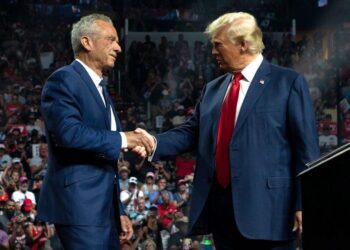After Action Report
Steve Bannon’s Tuesday WarRoom program will stand as a lightning rod for understanding the intersection of faith, politics, and power in today’s world. Bannon’s remarks were not just political talking point—they really were a primer about Populism for those committed to individual sovereignty, justice, and constitutional principles.
Populism: The People’s Revolution
On Tuesday’s WarRoom, Bannon describes today’s political battle as a “Populist-Nationalist revolution.” He sees this movement as a historical echo of America’s founding ideals. “This is a populist-nationalist revolution. It’s a process. We’re not going to win every election,” he explained, positioning this struggle as much bigger than mere partisanship.
His message underscores that change doesn’t come overnight. It’s a process driven by the sovereign will of the people. For Bannon, this is democracy at its most raw and unfiltered—power in the hands of the people, not elites.
Sovereign Will: The Anchor of Liberty
At the heart of Bannon’s philosophy is the belief in sovereign will—the idea that power flows from the people, grounded in constitutional principles. He argues that elites have hijacked this system, weaponizing institutions to suppress dissent and control narratives.
“This is a fight. This is going to be won or lost in the trenches,” Bannon said. He equates this battle to the struggles of Washington and Lincoln, leaders who faced immense odds to preserve the Republic. By tying his movement to such historical figures, Bannon calls on citizens to take their civic duty seriously.
Revelation: A Prophetic Framework
Bannon’s commentary took a dramatic turn when he invoked the Book of Revelation. This wasn’t a casual reference; it was a teaching moment. Bannon views today’s political strife as apocalyptic in scale—a moral and existential battle for the soul of the nation.
“The stakes are biblical,” he seemed to suggest. For Bannon, this isn’t just about politics—it’s about aligning the nation’s destiny with divine purpose. He positions himself and the MAGA movement as stewards of this critical moment in history.
Why It Matters
Bannon’s perspective challenges Americans to reconsider their role in shaping the nation’s future. His invocation of populism, sovereign will, and biblical prophecy isn’t just rhetoric. It’s a framework for understanding the deeper forces at play in modern politics.
By anchoring his message in historical and spiritual principles, Bannon appeals to both patriotism and faith. He reminds us that the fight for justice isn’t just in the courtroom or the ballot box—it’s in the hearts and minds of every citizen.
Key Takeaways
- Populism is a process. Change takes time, and perseverance is key.
- Sovereign will is under attack. Power belongs to the people, not the elites.
- The stakes are biblical. This is a moment of profound moral significance.
Bannon’s defiance and clarity make his teachings more than just commentary—they are classic community organizing but more powerful. In his words: “I believe in this program. I believe in what it stands for.” His vision calls us to rise, act, and fight for a future that honors both the Constitution and the will of the people.
For more context, watch these Tuesday WarRoom segment featuring Steve Bannon:




